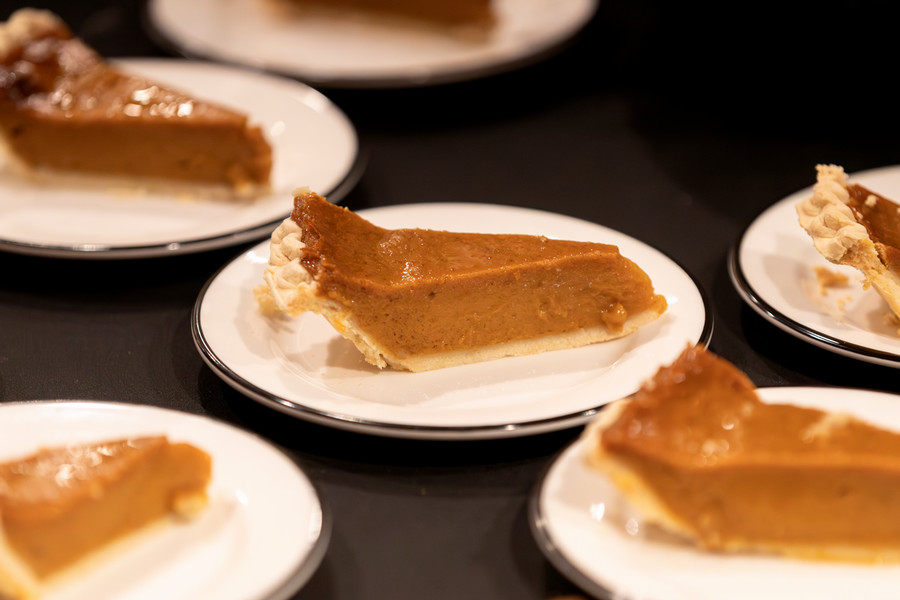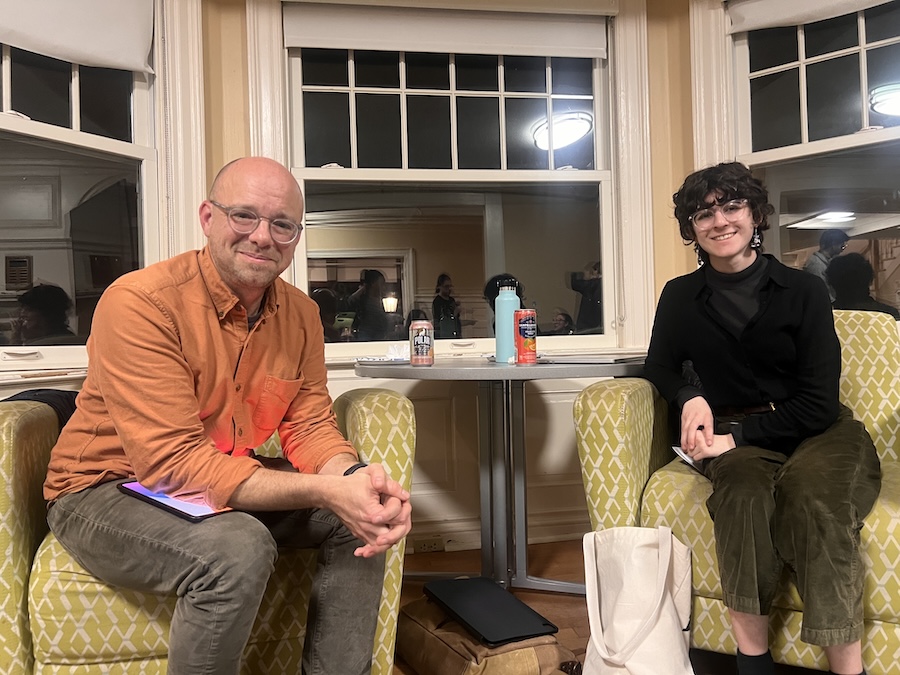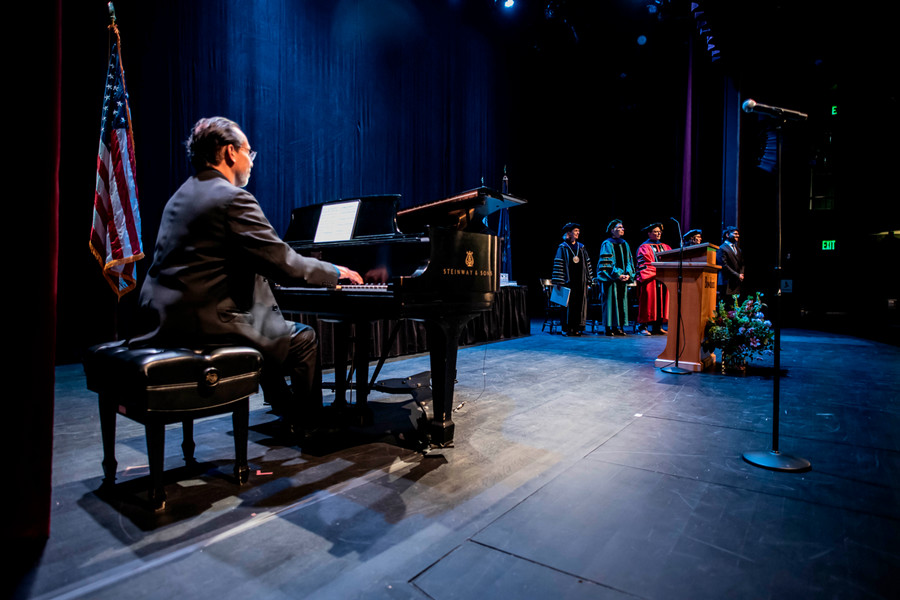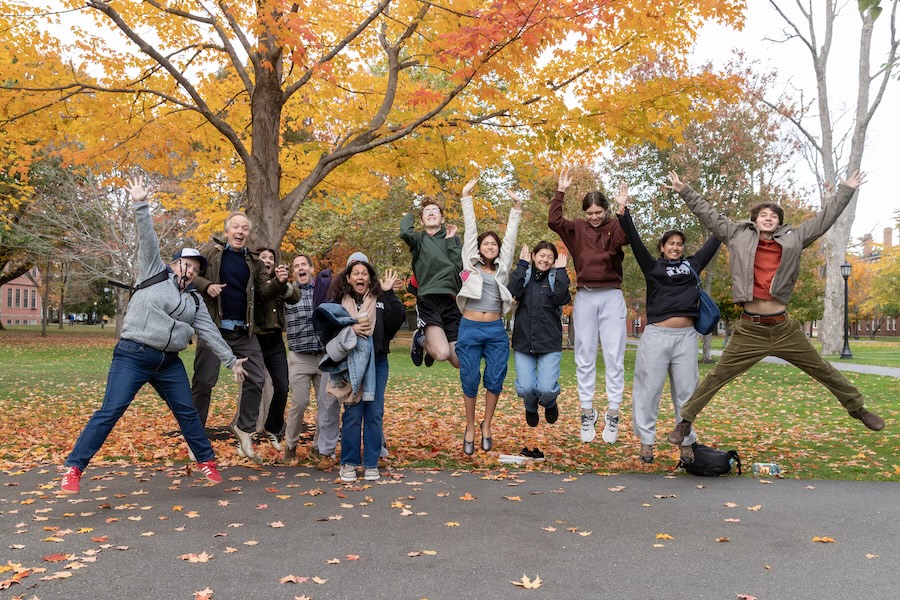Ian Ward ’20 and Kate Lusignan ’21 Revel in Local Journalism at Portland Paper
By Symone Marie Holloway '22The Instagram post above was from the day the two Bowdoin students "took over" Bowdoin's official social media account.
Ian Ward ’20 and Kate Lusignan ’21 are using funded internship grants from Bowdoin's Center for Career Exploration and Development to pursue internships at the Portland Press Herald.
When asked what drew them to the opportunity, they echoed one another. "I'm a history major and that's just the business of telling stories, right? You draw evidence, you speak to people, and you the bolster the argument. It's not essentially different whether it's journalism or history," Ward said.
Lusignan said she's drawn by the idea of getting to hear people's stories. "The way that journalists can and do tell stories is really compelling," she said. "I always think of things historically, and my articles could become a part of history."
In addition to studying history, Ward is also a Classics minor and a managing editor for the Bowdoin Orient. Lusignan, a gender, sexuality, and women's studies/English double major, is the Orient's executive editor. She started writing for the newspaper the first week of her first year at Bowdoin. "I love talking to people, I love writing, I love researching, and I really love journalism," she said.
At the Press Herald, Lusignan spends her time in the news room, reporting on events from around the state—all of which can be viewed here. Her first week on the job coincided with the unexpected arrival in Portland of more than 300 asylum seekers, mostly from Angola and the Democratic Republic of Congo. One of her first tasks was covering the volunteers who helped the new arrivals.
Ward is working for the paper's sports section. His work can be viewed here. He's covered many stories, from professional bowling events to Little League baseball games. Much like the athletes he has to cover, Ward has to be quick, spry, and flexible. "The newspaper goes to print at 10:00 p.m.," he said. "So, if the event ends at 9:00, I have an hour to find a McDonald's that has wifi, sit-down, write a piece, and file it before ten o'clock."
He is on Bowdoin's rowing team, and picked up sports journalism when the Orient wanted to expand its coverage of student athletics. He says there's much more to sports journalism than just recording stats and plays. "Sports are very political, and are assuming a more visible and more valued position in our cultural imagination," he argued. He referenced the US women's soccer team filing a federal lawsuit for gender discrimination just three months before defending the Women's World Cup title.
"Fifty years ago journalism was like a glorified box score. You go out to a game and write what happened," he said. "Now, sports journalists are writing increasingly in the narrative voice, doing investigative work—so it's progressed."
He added that sports reporting is opening up to more writers as well. "It's diversifying. It used to be boy's club—and to a large extent it still is a boy's club—but now there are a lot of exciting women's voices and people of color writing in this way, which only makes it better," he said.
Working at the Portland Press Herald has deepened both students' appreciation for local journalism.
"It's really important. It's absolutely vital for local communities and even democracy," Ward said. "The Press Herald has been really eye-opening for that. And I wish that sometimes Bowdoin students invested a little bit more in that community. Caring and subscribing to local journalism is a great way to do that."
For Lusignan, her involvement in regional reporting has been the best part of the summer. "I've really liked being immersed in a community that I hadn't known too much about. I think Mainers in general are super open and super easy to talk with, and I think that the Portland Press Herald stands out because it's good local journalism."
Ward is also optimistic about local journalism's future, although he sees it moving completely online and away from print.
Yet, Lusignan still finds value in old-fashioned print journalism. "I've seen and heard of other newspapers that are focused on digital content, and I think it should be explored as a medium in journalism, but for me, digital newsrooms seem so fast," she said. "They're just hammering things out for deadlines and clicks. As an intern, having a print newspaper to work for slows down the process in some ways. It's not about getting it out as fast as you can, it's about making sure the story develops."
Bowdoin does not have a communications major, but Lusignan is confident her education has prepared her well for a reporting career. "Learning how to think is the skill that you need to be successful as a journalist, and the liberal arts experience really prepares you for that. My English classes have taught me how to write, and the gender and women's studies classes have helped me learn how to contextualize. Learning to be cognizant of sexualities, race, and other differences has, in my opinion, made me a better journalist," she said.



